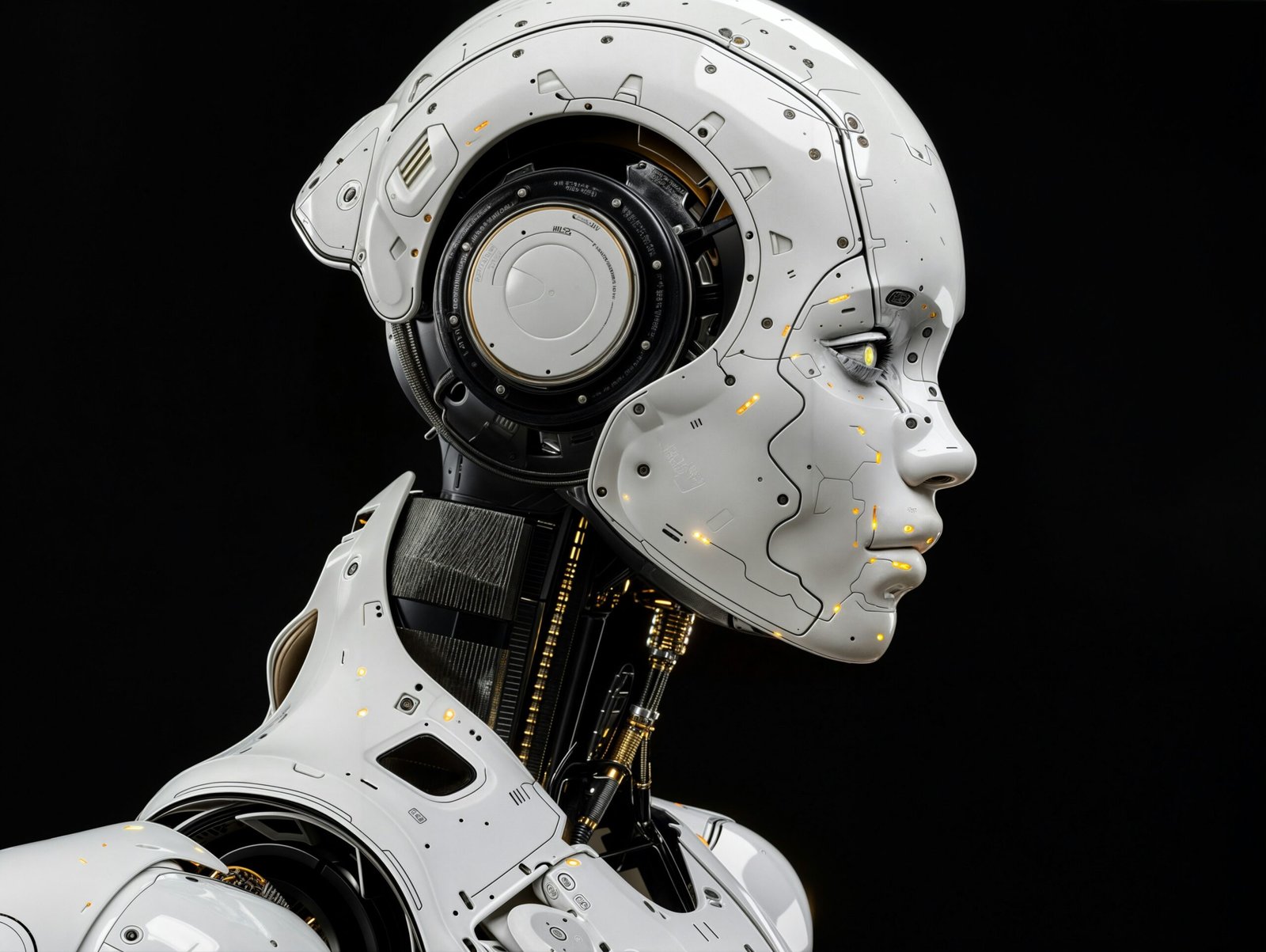Imagine a world where technology and humanity merge seamlessly, creating individuals who are not only more intelligent but also more adaptable and resilient. Welcome to the Future-Ready Enhanced Human Framework—often abbreviated as frehf. This innovative approach is designed to equip us with the tools necessary for thriving in an increasingly complex digital landscape. As we navigate rapid advancements in artificial intelligence, biotechnology, and various other fields, understanding frehf becomes essential for anyone looking to harness these changes positively.
What if you could enhance your cognitive abilities or adapt instantly to new challenges? That’s precisely what frehf aims to achieve: a framework that prepares us for tomorrow’s uncertainties while amplifying our inherent strengths today. Join us as we delve into this transformative concept, exploring its implications and potential benefits for society at large. The future is here; let’s dive into how frehf can shape it.
The Advancements of Technology and its Impact on Humanity
Technology has transformed our lives in ways we could never have imagined. From the dawn of the internet to the rise of artificial intelligence, each leap forward reshapes how we connect and interact.
Communication is instantaneous now. A message sent halfway across the globe arrives in seconds, fostering relationships that span continents.
Healthcare has also seen a revolution. Telemedicine puts expert care at our fingertips, enabling remote consultations and personalized treatment plans tailored to individual needs.
However, with these advancements come challenges. The digital divide leaves some behind while privacy concerns loom large as data becomes more accessible than ever.
As technology evolves, so does its influence on society’s values and behaviors. It raises questions about reliance on machines versus human experience—an ongoing dialogue essential for navigating this new landscape together.
What is frehf and How Does it Work?
The Future-Ready Enhanced Human Framework, or frehf, is an innovative approach designed to integrate advanced technology into the human experience. It merges artificial intelligence with human capabilities to enhance decision-making and problem-solving skills.
At its core, frehf leverages data analytics and machine learning. This allows individuals to access real-time information tailored to their unique needs and preferences. By doing so, it creates a personalized ecosystem where users can thrive.
How does this work? Frehf employs intuitive interfaces that are easy to navigate. Users interact seamlessly with AI-driven tools which suggest optimal solutions based on previous choices and current trends.
Moreover, frehf emphasizes continuous learning. As users engage with the system, it evolves alongside them—adapting strategies for improved outcomes in personal and professional settings. This dynamic relationship fosters enhanced productivity while promoting individual growth.
Benefits of Using frehf
The Future-Ready Enhanced Human Framework (frehf) offers a myriad of benefits that can transform personal and professional landscapes.
One of its standout advantages is the ability to enhance decision-making skills. By integrating advanced data analytics, individuals can make more informed choices based on real-time insights.
Another key benefit lies in fostering collaboration. frehf encourages seamless interaction between teams, enabling them to harness diverse perspectives for innovative solutions.
In addition, it promotes lifelong learning. Users are equipped with tools that facilitate continuous education and skill development, keeping them relevant in an ever-evolving job market.
Moreover, the framework enhances mental well-being by incorporating mindfulness practices. This holistic approach nurtures both cognitive and emotional health.
Frehf supports adaptability amid change. As technology advances rapidly, having a robust framework ensures individuals can pivot effectively without losing momentum in their pursuits.
Potential Concerns and Controversies Surrounding frehf
As with any emerging technology, frehf raises significant concerns. Privacy and data security are at the forefront of discussions. The extensive data collection required for personal enhancement can lead to misuse or unauthorized access.
Another area of concern is ethical implications. Enhancing human capabilities might create a divide between those who can afford such technologies and those who cannot, leading to societal inequality.
The potential for dependency on this framework also worries many experts. If individuals rely too heavily on enhancements, it could diminish essential skills or critical thinking over time.
Moreover, there are questions about the long-term effects on mental health. Continuous connection to enhanced networks may exacerbate feelings of isolation in some users while raising anxiety levels among others.
These issues underscore the necessity for careful regulation and open dialogue as frehf develops further in society.
Real-Life Applications and Examples of frehf in Action
The Future-Ready Enhanced Human Framework (frehf) finds its footing in various sectors, revolutionizing how we interact and work. In healthcare, imagine a system where doctors use AI-driven insights to personalize treatments. Patients receive tailored therapies based on their unique genetic makeup.
Education also benefits significantly from frehf. Adaptive learning platforms analyze student performance in real-time, offering customized curricula that cater to individual learning styles. This ensures no one is left behind.
In the corporate world, companies are leveraging frehf for workforce optimization. By utilizing data analytics, businesses can predict employee needs and enhance productivity through personalized resources.
Moreover, cities are stepping up with smart technology integrated into urban planning using frehf principles. Sensors monitor traffic patterns while improving public transport efficiency and reducing congestion.
These applications illustrate just a glimpse of what frehf brings to life today across multiple domains. Each example highlights an innovative approach to enhancing human experiences.
The Future of frehf and its Potential Impact on Society
The future of frehf is brimming with possibilities. As we integrate this framework into everyday life, society could witness transformative changes.
Enhanced cognitive capabilities may redefine how we learn and interact. Imagine a world where education adapts to individual learning styles in real-time. This personalization fosters deeper understanding and engagement.
Moreover, the workplace stands to benefit immensely. Frehf can streamline processes, promote collaboration, and enhance productivity through automated tasks. Employees may focus on creativity rather than mundane duties.
Health care could also see revolutionary advances. With enhanced human frameworks guiding treatments tailored specifically to individuals’ needs, outcomes might improve dramatically.
As these advancements unfold, ethical considerations will emerge too. Balancing technology’s benefits against potential risks will be crucial for ensuring equitable access for all members of society. Navigating this landscape requires open dialogue and collaborative efforts across various sectors.
Conclusion: Is frehf the Key to a Better
The Future-Ready Enhanced Human Framework (frehf) presents a compelling vision for humanity’s relationship with technology. As advancements in AI, biotechnology, and digital tools continue to reshape our lives, frehf offers a structured approach to harness these innovations while enhancing human capabilities.
By integrating enhanced cognitive abilities with emotional intelligence and ethical considerations, frehf aims to prepare individuals for the rapidly evolving landscape of work and society. The benefits are significant: improved decision-making skills, better collaboration among diverse teams, and an overall uplift in productivity.
However, adopting such a framework does not come without its challenges. Ethical concerns about privacy, access inequality, and potential misuse of technology remain at the forefront of discussions surrounding frehf’s implementation.
Real-world applications abound—from educational institutions utilizing frehf principles to develop future-ready students to corporations adopting its tenets for more adaptive organizational structures. These examples illustrate that the framework is not merely theoretical but embodies practical solutions tailored for contemporary issues.
Looking ahead, frehf has the potential to transform how we view ourselves as humans in an increasingly automated world. It fosters resilience by encouraging adaptability amidst change—a necessity as we navigate unknown futures together.
Is this innovative framework truly the key to unlocking a better tomorrow? The answer lies within our collective commitment to shaping it responsibly while embracing its promise-driven possibilities.

